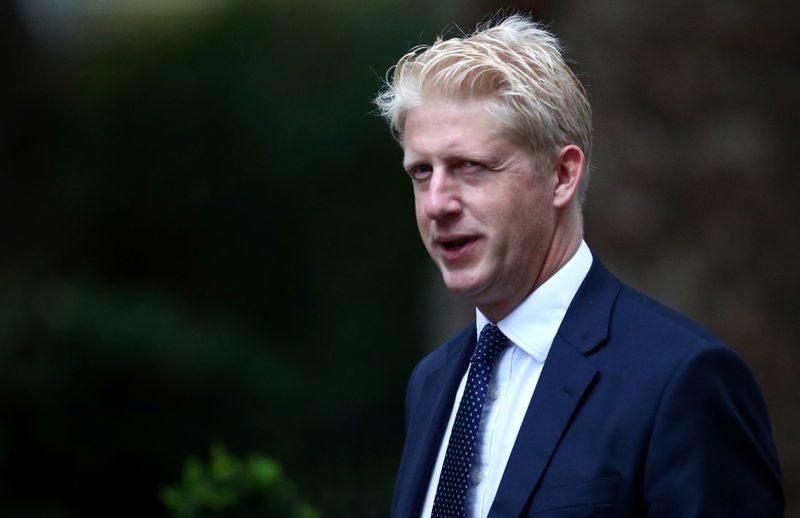By Estelle Shirbon
LONDON (Reuters) - British Prime Minister Boris Johnson has elevated to the House of Lords his younger brother, a cricket hero and some of his allies in the campaign to take Britain out of the European Union.
Under an arcane system whose inner workings are not exposed to public scrutiny, British political leaders are entitled on certain occasions to nominate people to the upper chamber of parliament, where they can sit for life.
Among 36 nominations announced on Friday was Jo Johnson, the prime minister's younger brother, who quit as a junior minister last year because he disagreed with his boss and older sibling's Brexit strategy.
Jo Johnson supported remaining in the European Union in a 2016 referendum, in sharp contrast to Boris Johnson, who led the successful campaign for Britain to quit the bloc.
In another apparent olive branch to heal Brexit divisions within his Conservative Party, the prime minister nominated former finance minister Philip Hammond, a prominent remainer who was long the target of vitriolic attacks by Brexit supporters.
Other political nominations tilted more towards the Brexit camp, with peerages bestowed on former opposition Labour lawmakers Kate Hoey and Gisela Stuart, who as ardent Brexiteers became unlikely allies of Johnson during the referendum.
He also nominated former England cricket captain Ian Botham, who in his heyday in the 1980s was regarded by many fans of the sport as one of its finest all-rounders. Botham was not recognised for his achievements on the field, however, but for his enthusiastic Brexit campaigning.
Among other eye-catching nominations was that of Evgeny Lebedev, the British-Russian owner of the Evening Standard and Independent newspapers. He is the son of Alexander Lebedev, a former KGB agent who became an oligarch.
Evgeny Lebedev, who has spent most of his life in Britain, is frequently seen in high society circles in London, where he is active as a charity campaigner and patron of the arts. He controversially appointed former Conservative finance minister George Osborne, who had no previous experience in journalism, as editor of the Evening Standard in 2017.

The House of Lords has more than 800 members, and despite perennial complaints that the number is far too high and the nominations process opaque and prone to cronyism, prime ministers from all sides have enthusiastically added to its numbers.